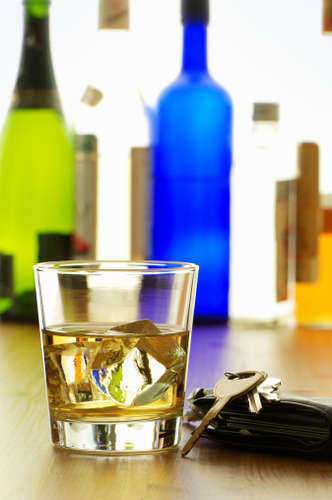New York DUI Laws
Guide to New York DUI Laws

Driving drunk is a serious crime in every state in the United States. NY DUI laws seek to encourage safe driving behavior by imposing stiff mandatory penalties on even first-time drunk drivers. If you are being prosecuted for a drunk driving related offense, it is important for you to understand New York DUI laws so you can know what to expect from your case. If you need more information on NY DUI laws than you can find in this guide, it may be best to consult with a New York DUI attorney.
BAC Limits
In most states, including New York, DUI laws have been changed to include drivers with lower BAC (blood alcohol content) levels than before. If you are chemically tested and show a BAC level of .08 or above, you are considered legally intoxicated and can be prosecuted under New York DUI laws. For drivers under 21, nearly any amount of alcohol will lead to an arrest under NY DUI laws—the BAC limit for these drivers is only .02. Commercial drivers are also subject to increased scrutiny over regular drivers, and are considered legally intoxicated according to New York DUI laws with a BAC of .04. These NY DUI laws correspond to many other states' current laws.
Refusal to Test
If you refuse to submit to a blood, urine, or breath test to detect alcohol in your system, the state of New York's implied consent doctrine means that you will be advised by a police officer that your refusal will result in a license suspension. The license suspension received by drivers for refusing a sobriety test is administrative and handled by the DMV. In some cases, a DUI attorney may be able to help you even if you have refused a test and had your license suspended according to New York DUI laws.
Penalties
NY DUI laws include many penalties for drivers caught with high blood alcohol levels. If you are convicted of first-time drunk driving, you can expect to pay a fine of $500 to $1000, and may be sentenced to a jail term of up to a year. New York DUI laws also require that drunk driving offenders are sent for alcohol screening or an addiction evaluation. You can also expect that your driver's license will be suspended for at least six months.
In some situations, you may be allowed by NY DUI laws to obtain a hardship permit that lets you continue driving to school or work. However, hardship permits limit the hours when you can drive, and will generally not be given to drivers until they have served out a significant portion of the suspension.
Plea Bargaining
In some states, drunk drivers can plea bargain to reckless driving, keeping a drunk driving offense off their record. However, New York DUI laws explicitly prohibit this kind of plea bargain. If you are charged with a violation of NY DUI laws, you can expect to have DUI listed as the conviction rather than reckless driving.